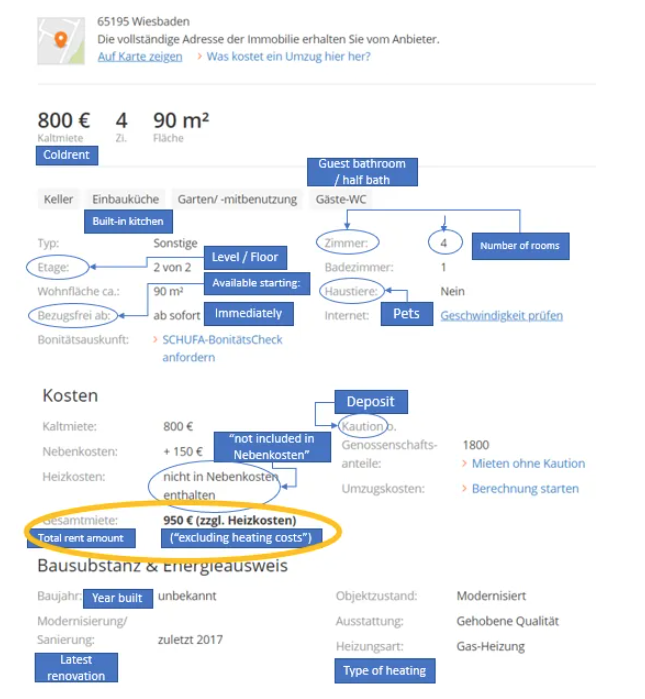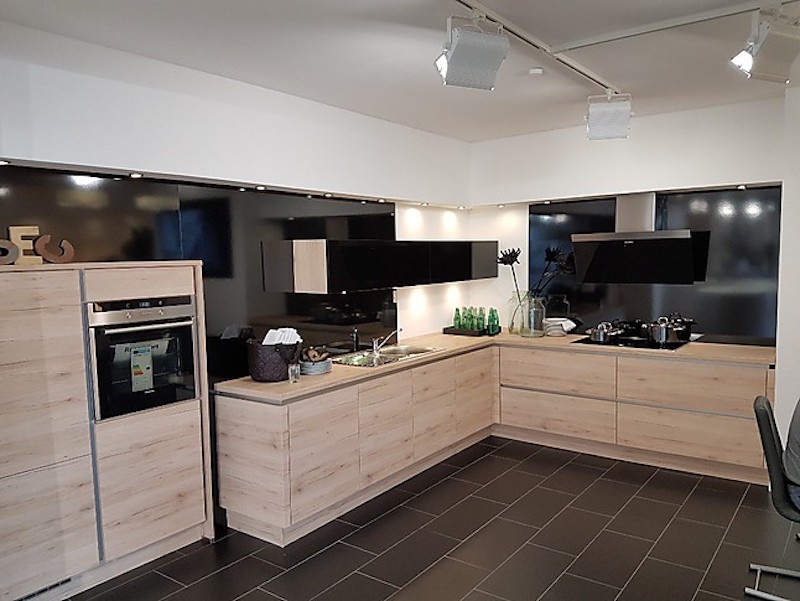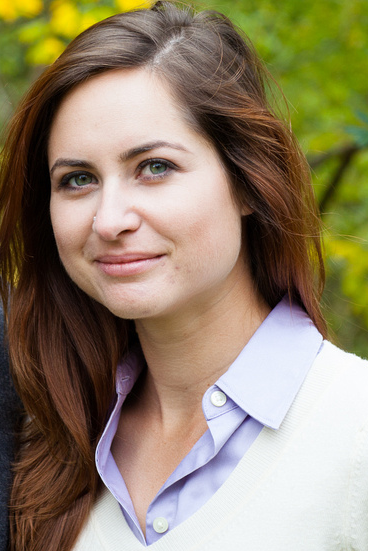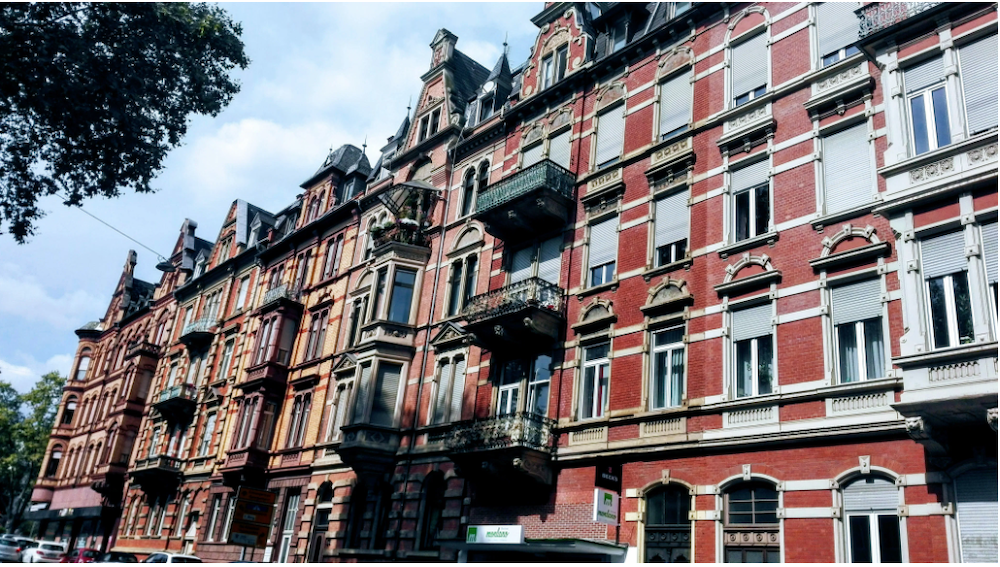(Editor’s note: A version of this guide to renting in Germany was first published on Audrey is (a)Broad. It’s reposted here with permission. You can read Pt. 2 here.)
This guide is aimed towards common rental agreements in apartment buildings in city centers (mostly Wiesbaden) from private landlords. However, there is some general information which should apply for every type of rental whether in an apartment building or a standalone house.(Also note Germans tend to use the word “house” to mean every kind of building, including shared multi-properties.)
How does one rent an apartment in Germany? What makes it different than renting in the United States?
- You probably won’t find carpet in homes / apartments.
- Your wallpaper is going to look like all your expat friends’ rentals (a standard crisp white with bumpy texture).
- There might (probably will) be a requirement to Luftzug (open the windows for 15 minutes twice a day).
- There are so many more chicken and egg scenarios here.
- Words are not in English (foreign languages have different words for everything, so inconvenient).
- You may never meet your neighbors (in apartment buildings, not so different from large coastal U.S. cities).
- If no one in the building is home, and the mailboxes are inside the entryway, there will be no mail delivery that day.
- Deposits on rent are higher here.
- Expect most layouts to be one long hallway with rooms off to the sides, each with a door.
- The floorplans are going to be interesting in general.
- There are more “upfront” costs and time delays in general.
HOW DO I SAY…?
Real Estate Vocabulary
- Immobilien – Real estate / property
- Kaltmiete – Cold rent (the base price of an apartment per month)
- Warmmiete – Warm rent (the base price plus some utility and upkeep, such as facility maintenance or property taxes)
- Nebenkosten – Additional costs, such as taxes or some utilities, bundled into the Warm rent price. This might be closely translated as “condo fees” in American English, but contain more than just property upkeep or association fees.
- Einbauküche – Built-in kitchen (most Germany purchase new kitchens, meaning cabinet and appliance setups, when they move into a new apartment, then either take it with them when they leave or toss it out).
- WG – Apartment share or roommate situation (I’ve heard and seen many landlords who are not keen on having multiple tenants, so make sure if you’re going this route that a WG situation with the potential landlord is acceptable).
- Nach Vereinbarung – After arrangement (usually seen with the “pets allowed?” category)
- Mietvertrag – Lease or rental contract
- Mieter – Renter / Tenant
- Miet – Rent as in both verb and noun (monthly payment)
- Vermieter – Landlord
- Heizung – Heating, multiple types exist, we have Unterbodenheizung, pipes that run under the floors and heat with hot water. 99 percent of the time included in Nebenkosten.
- Strom – Electricity
- Kabel – Cable (TV)
- Wasser – Water
- Altbau – Old building, pre 1900’s
- Neubau – New building, could be built anywhere from 1960 – present
- Aufzug – Elevator
- Hinterhof – A building or house which is not directly on the street, but sits on a courtyard behind the buildings on the street
- Zimmer – Room. German homes and apartments are measured in rooms, rather than bedrooms. For example, a four zimmer house is probably a kitchen, living room, bedroom, and maybe a dining room or a smaller room for an office.
- Keller – Cellar, basement, storage place, etc.
- Kaution – Deposit
- Versicherungen – Insurance(s)
- Makler – Real estate agent
Start looking
There are a few places to look online. I usually turn to ImmoScout when I’m hunting around. I’ve also looked at ImmoWelt. I say “usually” like I’m always doing this. Reality is: We’ve moved three times, most recently out of Wiesbaden proper.
Other places I’ve taken a look at it, but not used, or found recommended on other forums:
• Quoka
• Wohnungsmarkt24
• Immonet (owned by ImmoWelt)
HOW TO READ A RENTAL AD

(The yellow circle indicates what the actual rent of this apartment will be each month.)
When in doubt:
There are plenty of rental agents who speak English quite well and specialize in helping foreigners settle in. They usually advertise on the same rental sites as above, and even if you’re not interested in one of their current listings, in my experience they’re happy to work with you one-on-one to find something else.

A SUBTLE GERMAN DIFFERENCE
When shopping for your apartment, you will notice that not all apartments come with an Einbaküche, or “built-in kitchen”, which sounds weird because why would an entire room of the house not be part of the offer?
The word for “kitchen” and “all the cupboards / appliances / countertops in the kitchen” is the same, Küche.
WHAT’S IN A LEASE?
Most leases require three month’s notice before moving out. This makes life incredibly difficult when trying to find a new place. Often what happens (after polling friends) is one ends up paying a double rent for one month before moving into the new place.
Another common requirement is a complete repaint of all the walls upon moving out. Personally, I think this is mostly because Europeans smoke much more than Americans, and often indoors. This would require then a repaint to clean up the apartment for the next family. But another reason could be that Germans do not often move apartments like Americans do.
The few apartments we’ve looked at in the past have all hinted at wanting to rent to someone who will stay for a minimum of five years. Five years seems like a long time to me! Some of the leases themselves were even a minimum of 2 years! This probably ties into the German way of avoiding risks as much as possible. Therefore, after living in one place for five years or more, one might be tempted to paint or put up paper on bland white walls for a more personal touch.
Then the paint clause makes sense.
The lease should also contain a space to put your bank account information. Payments are withdrawn automatically via SEPA every month. Most of the time, you will need to setup the automatic payments with your bank yourself, if renting from a private landlord.
Take this lease with you when you complete your Anmeldung and (most especially) when you apply for your long term visa.
Making your lease legal in your city, setting up utilities, trash, water and so many more details.

About the author:
Audrey Shankles is an American who moved to Germany, and who writes about how that’s going at www.a-broad.com. She comes from the Washington DC region in the United States and has been in Germany for more than five years. While she misses the Nats, the Caps and brunches along the Potomac, she’s fallen in love with the Rheingau, 3 euro beers, and taking the train everywhere.
Audrey has held a multitude of jobs and explored numerous careers and fancies herself a “person who does things with people she likes.” When writing, she focuses on helping people understand their appliances and recipes in German, posts her personal thoughts about living abroad and her failures at integrating into German society.














